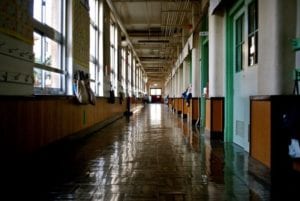Indian privacy watchdogs are voicing their concerns about a facial recognition program at public schools in Delhi. City officials first disclosed their plans to install CCTV cameras in schools in 2019, but the fact that those cameras would also have facial recognition capabilities did not become public knowledge until the past few weeks.

The technology has already been deployed at upwards of a dozen government-funded schools. Officials eventually plan to bring CCTV cameras to more than 700 public schools in the city.
Delhi officials have argued that the cameras will strengthen security, and reduce truancy and absenteeism amongst the students. However, privacy advocates noted that the cameras are being rolled out in the absence of strong data protection laws, which means that the city does not have any formal structures in place to guarantee the integrity of its system. People do not know how their children’s data is being stored, nor do they know how it will be used once it is collected, and all of that information could be vulnerable to cybercriminals.
“These could cause real harm to the children if the data is leaked, not to mention the impact of always-on surveillance of the children,” said Prasanth Sugathan, the legal director of the digital rights non-profit Software Freedom Law Centre.
“CCTV is already a violation of children’s privacy, but the use of facial recognition technology is an overreach and is completely unjustified,” added Internet Freedom Foundation Associate Counsel Anushka Jain. “Its use for children is particularly problematic because the accuracy rate is so low – so in the event of a crime, you could have children being misidentified.”
The Internet Freedom Foundation has called for a three-year ban on the use of facial recognition to give lawmakers more time to catch up with technology and pass more meaningful data protection guidelines. Indian law enforcement organizations have recently been looking to expand their surveillance powers, and used facial recognition to make more than 1,100 arrests after public protests in March of 2020.
The Delhi policy stands in contrast to that of New York, which temporarily banned facial recognition in schools after several parents and privacy advocates challenged the deployment of facial recognition in Lockport schools. The Internet Freedom Foundation has since launched a new watchdog initiative that tracks public facial recognition projects in India.
Source: Aljazeera
–
March 2, 2021 – by Eric Weiss







Follow Us